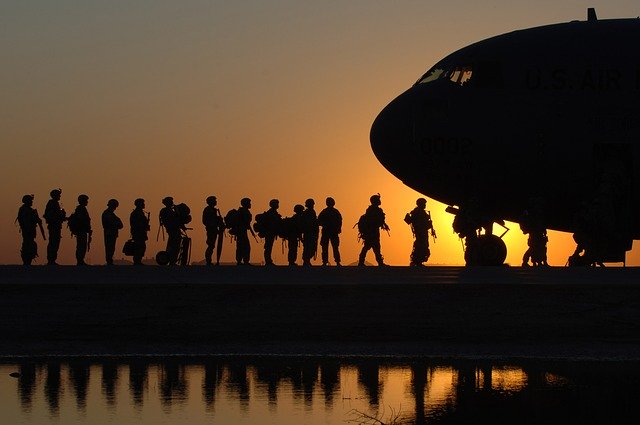
What is martial law? Perhaps you’ve heard that phrase thrown around over these last days. Could issues with the coronavirus get so serious that the United States enacts martial law? That sounds scary, but we need to know what that means for us. Although state-imposed restrictions, quarantines, and curfews may feel strict now, they can’t compare to martial law. In order for a country to enact martial law, things have to get so bad they’re beyond the ability of ordinary law and authorities to govern. So, in this blog, we’ll explain what is martial law.
What Is Martial Law? The Basics
First, let’s simply define martial law. Martial Law (not Marshall Law) happens when normal civilian government suspends and the military takes control instead. Sounds intense, right? Well, thankfully its usually only declared in order to respond to a crisis like an invasion, a major disaster, a coup, or something like that. Even countries with restrictive governments like China or Iran don’t call martial law willy-nilly. Instead, places known for instability and unrest declare martial law more often. For example, the longest running period of active martial law was in Syria between 1963 and 2011.
What Is Martial Law? US History
Second, what does US history tell us about martial law? Knowing some basic history can help us determine whether we’re close or far from that situation. Fortunately, since your rights are protected by the highest courts and laws in this country, martial law doesn’t happen too often. In fact, several laws exist to limit it. Furthermore, governors typically call martial law for their states. No state has officially declared martial law for decades. Not even Louisiana after Hurricane Katrina. Examples include:
- Most famously, at the national level during the Civil War (the only national use in US history)
- In San Francisco during a dock worker’s strike in 1934
- In Hawaii after the Pearl Harbor bombing in 1941
- In 1954 in Russell County, Alabama due to political corruption
- In 1963 in Cambridge, Maryland after riots
- And other examples
Martial Law and You
Third, what is martial law and how does it relate to you? If a governor declares martial law, typically the National Guard takes over. Then, they will enforce strict curfews to maintain order. Most importantly, the citizens’ right to habeas corpus is suspended. In other words, the right to hearing by trial is suspended. Why? Because unlike when the Army or National Guard is simply deployed somewhere in the country to help, under martial law, normal civil courts and procedures are suspended.
Need a Lawyer? Contact Mark Catanzaro!
Finally, as you can see, only something as catastrophic as the Civil War would lead to national martial law being declared. While situations may get severe in local areas or states, national martial law remains far from us. So, we hope we’ve answered the question “what is martial law?” For all other legal needs, reach out to Mark Catanzaro!